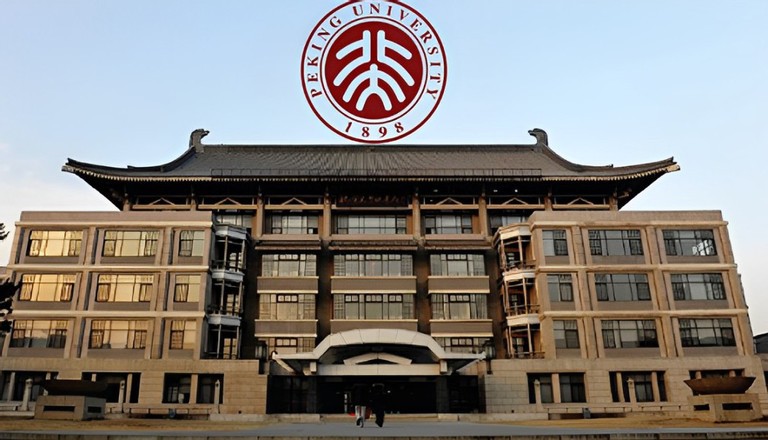 |
| In China, some universities such as Tsinghua University, Peking University, and Fudan University have piloted the elimination of transcripts and the use of AF-level assessments. (Source: Peking University) |
Recently, the article “Abolishing Grades – Reforming Student Assessment in Biological Sciences” by Peking University Newspaper has caused a wave of heated discussion in the Chinese education community. The article talks about how students at Asia’s top universities, under the pressure of rigorous academic assessment exams, end up “trapped in unnecessary competition just to improve by 1 or 2 points”.
To address this problem, Peking University's School of Life Sciences is experimenting with a new approach. The school is implementing a reform that eliminates GPA (grade point average) and uses a grade-based assessment method to evaluate student performance.
Under the new system, students' academic performance will be graded on a five-point scale from A to F instead of a 100-point scale. Students who score above 85 points will receive an A while those below 60 will be graded as an F.
Not only Peking University, in fact, some colleges under the 985 project (China's project of world-class universities) such as Tsinghua University, Fudan University, East China Normal University and Shanghai University of Technology have made efforts to reform the scoring system and apply hierarchical assessment.
“This new grading system helps us not to worry about competing to get higher grades than our friends. It also encourages us to spend more time on academic projects and research instead of just focusing on grades,” a student told Six Tone.
However, some students are worried that the new grading system will affect their study abroad applications. Accordingly, master's and doctoral training programs abroad often require candidates to submit transcripts or average university grades while the A-F grading scale will not specifically demonstrate the student's ability.
Addressing these concerns, Mr. Vuong The Cuong, Vice Principal of the School of Life Sciences, said that the school will issue certificates to students applying for postgraduate programs abroad. These certificates will explain the new grading system. “When the first batch of students are admitted to foreign universities using the new assessment method, public doubts will be reduced,” Mr. Vuong believes.
Grades have long been a “hard currency” for Chinese college students, meaning they are a highly valued and globally recognized asset. These numbers are important because they have a direct impact on various aspects of a student’s academic and career journey, such as applying for graduate school, studying abroad, receiving awards and assessments, and improving employment opportunities. However, the fierce competition for these grades can trap some students in a “spiral of unnecessary stress and pressure.”
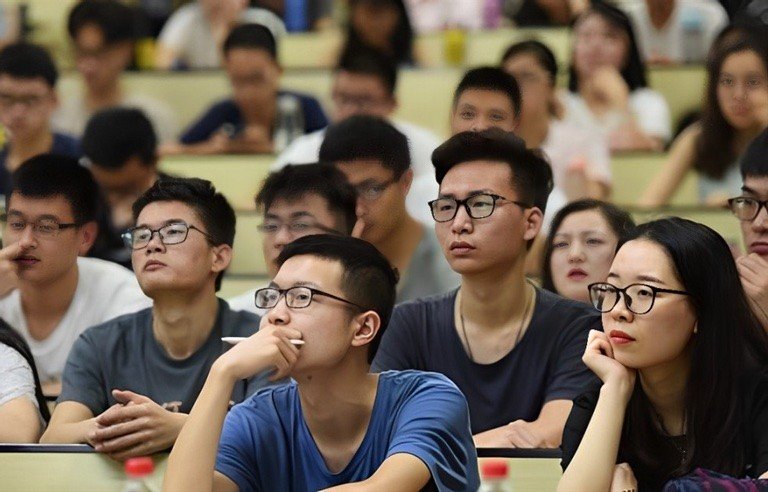 |
| The transition to the new assessment method is expected to help students focus on improving their overall experience instead of chasing scores. (Source: Xinhua) |
The pressure to get good grades is causing some students to focus on “brushing up” their grades as early as their freshman year. This means taking easier courses that will earn them higher grades, and avoiding courses that seem challenging but will benefit their overall knowledge. To get better grades, students are working hard on things like lab reports. But instead of really understanding the principles, they are often focused on meeting specific rules. For example, some people write long reports just to meet page requirements. It’s more about meeting criteria than actually learning.
Despite being aware of the downsides of the “grades are everything” mentality, many students put themselves in a difficult situation. They invest significant time and effort but get little real benefit. Gradually, students become caught up in a “zero-sum game,” meaning that one student’s win means another student’s loss. This creates a vicious cycle that obscures the real learning experience. However, many also question whether the hierarchy does not change the nature of the problem. It’s just that students who used to get low grades because they were nervous are now getting Bs because they are nervous.
The main difference, according to Mr. Vuong, is that the new assessment method gives students the opportunity to escape the “grade cage.” When a score of 85 or higher is considered an A, students do not need to obsess over small details like word count or writing format just to get an extra point or two.
In China, there are growing voices calling on students to focus on building relationships and enhancing their overall experience, such as participating in scientific research, social activities or interesting elective courses, instead of “blindly” pursuing grades.
Source




![[Photo] Thousands of Buddhists wait to worship Buddha's relics in Binh Chanh district](https://vphoto.vietnam.vn/thumb/1200x675/vietnam/resource/IMAGE/2025/5/3/e25a3fc76a6b41a5ac5ddb93627f4a7a)









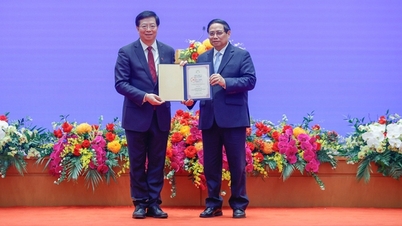

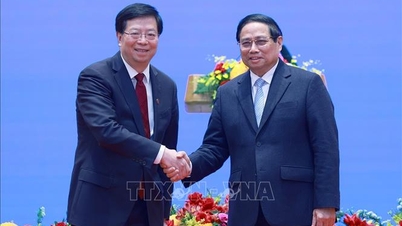







































































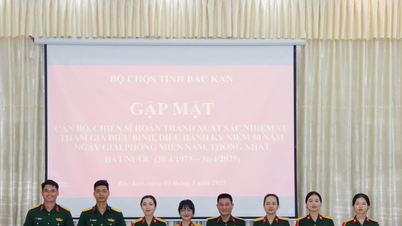










Comment (0)